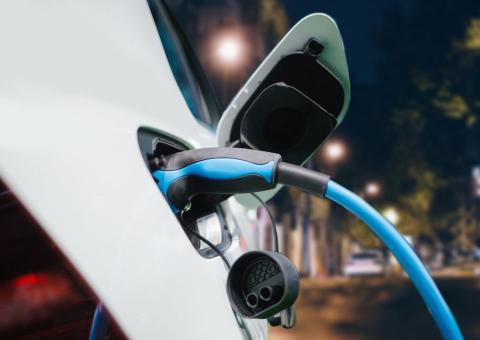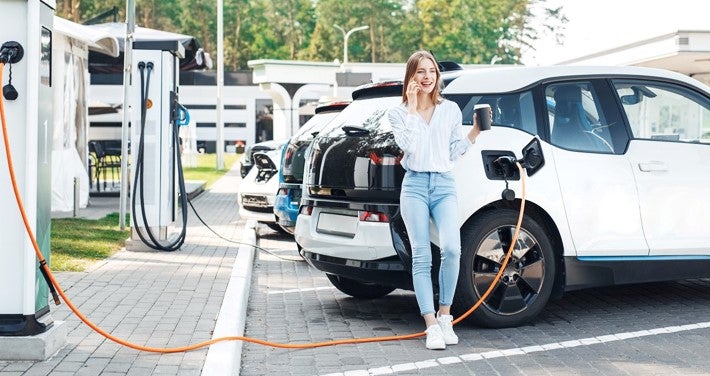We all know how to calculate the mileage of a gasoline-powered vehicle. It’s a simple formula: divide the distance traveled by the amount of energy used. For combustion engines, that energy is the volume of fuel consumed. But how do you calculate the mileage of an electric vehicle?
MPG vs MPGe
MPGe – or miles per gallon of gasoline-equivalent – is a unit of measure created by the Environmental Protection Agency (EPA) to enable an apples-to-apples comparison of gas-powered cars and electric vehicles. In fact, the United States government mandates that auto dealerships prominently display the MPG for combustion engines and MPGe for electric vehicles on the window sticker.
The EPA came up with MPGe in the 2000s when it determined that 33.7 kilowatt hours (kWh) was the equivalent of one gallon of gasoline in terms of its energy content. For all-electric cars, that makes the calculation easy: a vehicle that can travel 100 miles on 33.7 kWh of energy rates 100 MPGe.
Things get a bit trickier for plug-in hybrid vehicles, which use a combination of battery and gas power. In fact, a PHEV has two fuel economy values: one for when it operates on primarily battery power (MPGe), and one when it operates only on gas power (MPG).
Unlike gasoline-powered automobiles, EVs get better mileage in the city as opposed to the highway because the engine doesn’t waste energy when idling.
While the cost of electricity doesn’t fluctuate as much as the cost of gasoline, MPGe can’t offer a price comparison because the cost per kilowatt hour of electricity varies considerably by location. This can be misleading if you’re trying to calculate how much money you’ll spend on fill-ups.
Some utilities (including Unitil) offer Time-of-Use electricity rates that incentivize drivers to charge during off-peak hours with a tiered rate structure. Customers who are eligible for Unitil’s EV Time-of-Use (TOU) rates can utilize the utility’s Rate Comparison Calculator to estimate total cost of EV ownership and compare electricity costs on the standard rate vs. the EV TOU rate. The US Department of Energy also offers a Vehicle Cost Calculator.
MPGe vs. Range
MPGe is not the same as EV range, though the estimated driving range (or the distance you can travel on a full charge) of an EV is another important factor. The EPA tests EV range using a combination of continuous city and highway driving and assigns a range that appears on the EPA fuel economy label.
As with miles per gallon, miles per gallon of gasoline-equivalent ratings are subject to fluctuate depending on factors such as climate, cargo load, terrain, and driving habits.
Key Takeaways
- MPGe is not the same as EV range, which determines how far the vehicle can travel with a full charge.
- The Department of Energy maintains a list of EVs and PHEVs and their efficiencies on its website.
- MPGe is more useful for calculating energy consumption than fuel costs.




